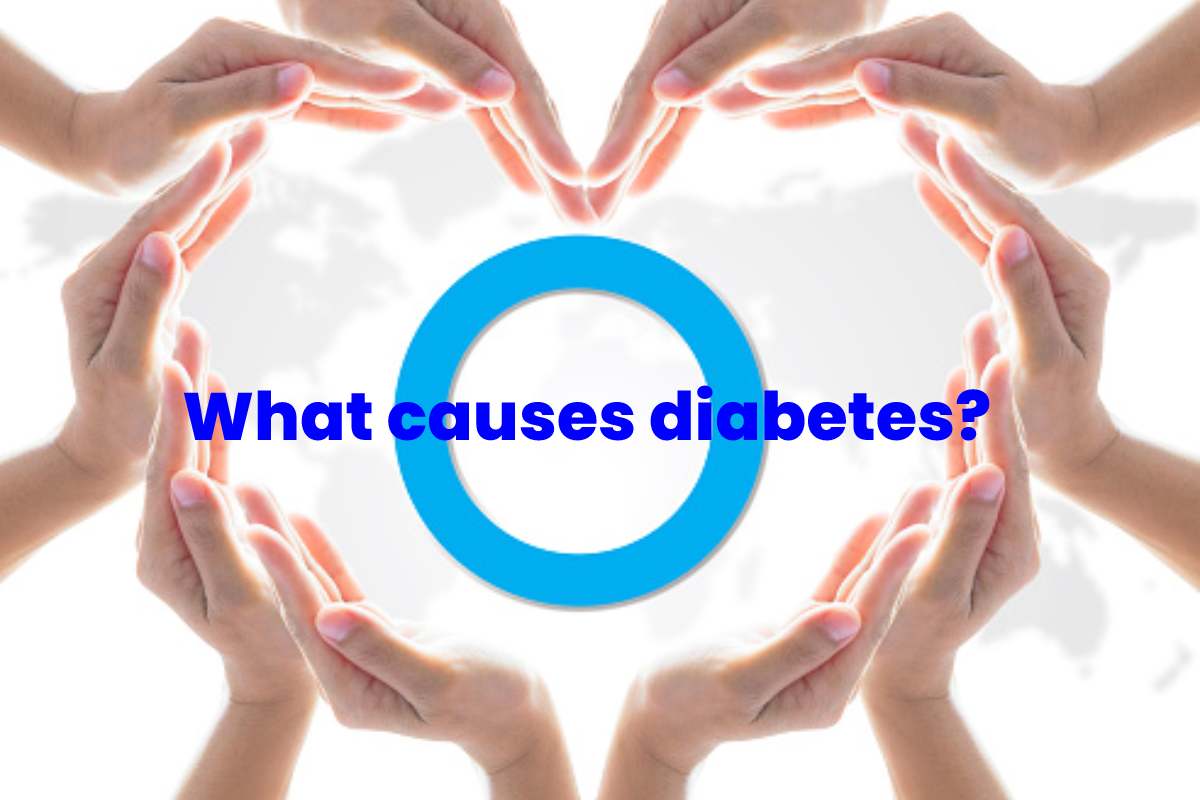Table of Contents
What is Diabetes?
What causes diabetes? Diabetes is a chronic disease, long-term and recurrent, where the pancreas does not produce insulin [a hormone that regulates thoroughbred sugar], or the soul does not use the insulin produced well.
The non-control of diabetes has hyperglycemia, increasing thoroughbred sugar that can rationalization severe forfeiture to variegated organs, the nervous system, and thoroughbred vessels.
Types of Diabetes

Type 1 Diabetes Mellitus:
In this case, the patients are insulin-dependent, their pancreas does not produce insulin, and therefore, this hormone must remain administered every day.
This type of diabetes can be detected in diaper or youth and corresponds to hereditary factors. Consequently, it cannot remain prevented.
Type of Diabetes
In this case, the patients are not insulin-dependent, and the disease can only be detected when it is wide and health complications have once occurred. The leading rationalization of kind two diabetes is a poor nutrition and a sedentary lifestyle that contribute to the early minutiae of overweight and obesity.
This type of diabetes represents 90% of cases worldwide and can remain prevented from the first moment of children’s lives through breastfeeding.
Gestational Diabetes
 This type of diabetes develops during pregnancy when the mother is overweight or obese at the time of pregnancy or significantly gains weight. In this case, hyperglycemia does not have the high levels of type of diabetes, but they are still above average values, which requires adequate medical control.
This type of diabetes develops during pregnancy when the mother is overweight or obese at the time of pregnancy or significantly gains weight. In this case, hyperglycemia does not have the high levels of type of diabetes, but they are still above average values, which requires adequate medical control.
Prediabetes
Like gestational diabetes, prediabetes has high blood sugar but is not high enough to be type of diabetes. However, without medical treatment, it is highly likely to develop into type of diabetes in five to ten years.
What causes diabetes – How to avoid Prediabetes and type of Diabetes
As the pediatrician at Clínica Dávila, María Luisa Aguirre, points out, who is also a Master in Clinical Nutrition, type of diabetes can remain avoided from the first hour of a child’s life. Breastfeeding within the first hour after childbirth, exclusive breastfeeding for the first six months of life. And the extension of natural breastfeeding until two years of life can prevent childhood overweight and obesity.
The specialist also points out that “if the mother is overweight and obese during pregnancy or has more gain than she should. Develops gestational diabetes, it is likely that the child has a higher risk of being overweight and obese.”
Since bad habits cause type of diabetes, prevention is simple: Balanced eating habits and a healthy life with a high presence of exercise, sports, or physical activity. Unfortunately, from a young age, children are exposed to eating only what their parents offer, so, within the first years of life, feeding children is the responsibility of adults.
The expert also comments on the risks of contracting diseases typical of adulthood, such as cardiovascular problems. High blood pressure, and diabetes, and points out that “the risk of having these diseases increases 9, 10 times when children remain obese until they are 18 years.
If a child who is obese normalizes her weight during her childhood, that risk no longer exists” therein lies the importance of controlling weight before 18.
The pediatrician recommends healthy habits to avoid childhood overweight and obesity:
- Water for thirst.
- 2 to 3 fruits a day.
- Vegetables and vegetables.
- Proteins like fish and egg.
- Up to 4 years old, no more than 200 ccs as a portion of food.
- Avoid salt and sugar also dressings.
- One hour daily of physical activity.
Consequences of Diabetes, What causes diabetes
What causes diabetes, whether type 1 or 2, can cause serious health problems if it is not detected, controlled, and treated in time. In Chile, as of 2017, according to the National Health Survey, 9.4% of Chileans have diabetes, 50% due to a sedentary lifestyle, 25% due to obesity, and 3% due to tobacco use; that is, 78% of cases of diabetes in Chile are type 2, and therefore preventable.
Some of the consequences of diabetes are:
- Blindness (diabetic retinopathy).
- Lower extremity amputation.
- Renal insufficiency.
- Increased risk of myocardial infarction.
- Increased risk of strokes.
- High emotional burden as it is a chronic and dependent disease.
The Family, The Partner, The Friends What causes diabetes
There is difficulty in maintaining correct attitudes; on many occasions, it remains appreciated:
Tendency to Overprotection:
The fear that our children may make a mistake in applying treatment, therapeutic non-compliance, etc… All this can cause the family not to allow the child to face new situations on their own, creating attitudes of dependency and insecurity in the child. Child as they are not allowed to make decisions or actively participate in treatment.
Lack of Parental Authority: What causes diabetes
Being negligent, “passing,” or downplaying our children’s treatment will lead to irresponsible attitudes and even therapeutic non-compliance.
Pressure Versus Self-Control Results:
Being too demanding will cause an obsession with the results. It may be that a rebellion remains awakened, even the rejection of the treatment by the child, adolescent, or adult.
Being too Authoritarian
There may be a risk that the child, adolescent, or adult becomes in the background regarding their diabetes, avoiding making decisions.
Negotiating Attitude:
It would be the most recommended since it promotes joint decision-making with the child, adolescent, and adult, ultimately reaffirming responsibility and safety in decision-making.
To Listen:
We must try to listen to the other if we want to remain heard.
A Positive Environment
What Aspects Can Positively Influence Coexistence: What causes diabetes
Do not reduce the existence of the person with diabetes to their disease when we ask how the day was? And we do not ask about aspects of the disease. Have you had a drop? Did you measure yourself before taking the insulin? Do you take carbohydrates? we build trust and show that we care about more than just diabetes.
Do not focus only on the result; positively reinforce the effort made to achieve it, even if it is not good.
Be positive with errors as they can help us modify guidelines that will help us better understand the treatment.
- Reasonably explain the prohibitions, in the case of the smallest.
- Dialogue about feelings, doubts, and fears without judging the other.
Regarding childhood and adolescence, care should remain that both parents transmit messages along the same lines.
Avoiding contradictions with their children. In any discrepancy, you should try to speak beforehand and agree on resolutions to prevent conflicts.
We must all have a Goal to learn to live with Diabetes and not for Diabetes. What causes diabetes
The family, partner, and friends must act as emotional support; in the case of non-autonomous minors, the family will manage or help manage their diabetes; in the case of the elderly, we should not expect a family member, or partner, friend to clarify doubts about diabetes.
Also read: How to find out the best PRP hair restoration in Los Angeles?
Conclusion
What causes diabetes The search by the person who has diabetes for good support is going to remain fundamental, the family, the medical team. However, the non-control of diabetes produces hyperglycemia, increasing blood sugar that can cause severe damage to different organs, the nervous system, and blood vessels.

